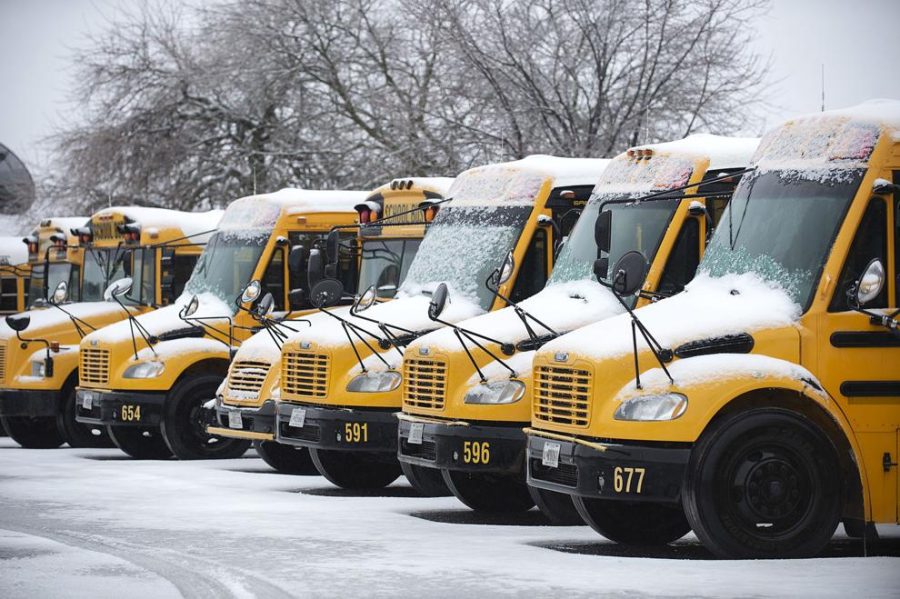Snow Days Are Now Asynchronous, Here’s What Oakdale Has To Say About It
Bill Green of the Frederick News Post
A line of snow-covered Maryland school buses on a inclement weather day.
January 5, 2023
On Thursday, December 8th the students and parents of Frederick County Public Schools were notified of a policy change involving inclement weather days. Per the county’s official documentation, up to 3 asynchronous days have been allotted as educational continuation. This would, for the time being, eliminate snow days as full days off. Even though the impacts would be minute, many students did not approve of this change; here is their argument.
Snow days, which have been a staple of mid-Atlantic culture, have acted as a wintery safe-haven for students; a time for sleeping in, playing in the snow, or wrapping up in a large blanket. These days gave students a meaningful break from the repetitious hallways of school. As Sophomore Kai Bragg put it: “[Students] don’t want their lives to surround school; schoolwork shouldn’t be our only option in life.”
Bragg’s point presents the clearest view of the difference between the administration and its pupils. While the administration may argue that students doing work at home causes fewer interruptions to their education, Sophomore Eshan Bhatia dissents; he posits that asynchronous work would function as simply “busywork,” rather than meaningful educational continuation.
But Bhatia’s argument presents a dilemma: should the work be more complicated in such a way that may require more attention from the student? Bhatia, continuing his argument, says: “I don’t think [it’s] a great idea unless [it’s] real work. [But if it was,] I would definitely spend my time outside and finish the work at the end of the day.”
A similar view was provided by an anonymous student: “[Some of my peers] might not consider it a genuine school day, and won’t take it seriously. [As a result,] they’ll also be less motivated to do work.” Their point offers a synthesis of Bhatia’s view: under the guise of busywork, students will not be motivated to do work on the asynchronous days unless it is substantial enough to serve a purpose to the greater educational picture.
But Scott Seiver, another Oakdale student, presented a differing view: “There will be a fair amount [of students] who complete [their work] because they don’t want to have to do it later, or because it can be quicker to work at home than in a classroom full of peer distractions.” But this returns to Bragg’s initial point: should students be expected to complete new, required work on snow days?
The general consensus among students was no, snow days should be left as days off, as they have been for generations. But the changing times remain an undeniable fact, and as technology allows for new frontiers of education to be explored, new experiments such as this will have to be carried out. So it will be interesting to see how this change pans out.
For FCPS, the change will be discussed more at the BOE meeting on January 11—the end of the current semester.






























